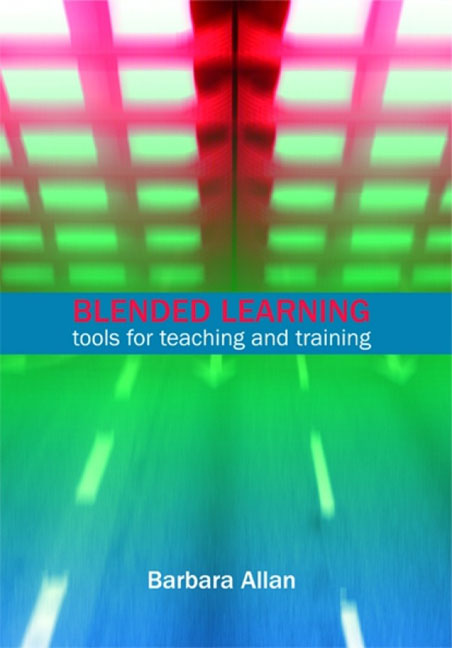Book contents
- Frontmatter
- Contents
- List of figures
- List of tables
- Acknowledgements
- 1 Introduction
- 2 Tools and technologies
- 3 Models of teaching and learning
- 4 Planning and designing blended learning programmes
- 5 Planning and designing learning activities
- 6 Working with groups
- 7 Working as a tutor
- 8 Communities of practice
- 9 Managing blended learning projects
- Index
8 - Communities of practice
Published online by Cambridge University Press: 08 June 2018
- Frontmatter
- Contents
- List of figures
- List of tables
- Acknowledgements
- 1 Introduction
- 2 Tools and technologies
- 3 Models of teaching and learning
- 4 Planning and designing blended learning programmes
- 5 Planning and designing learning activities
- 6 Working with groups
- 7 Working as a tutor
- 8 Communities of practice
- 9 Managing blended learning projects
- Index
Summary
Introduction
Librarians and information workers have a long history of working together and anyone reading the professional literature will soon realize that there are many professional groups and organizations that promote networking and collaborative working. Membership of these groups often provides access to information, help and support as well as informal mentoring and professional development. For many library and information workers, membership of these groups or communities is an important aspect of their development as professional practitioners. They provide opportunities for support, coaching and mentoring, as well as a group of like-minded individuals willing to work together on shared problems and issues. Communities of practice provide a means of enabling groups to come together and learn from and with each other. Many professional groups and organizations now support communities of practice and these are frequently mediated by a website hosting virtual communication tools.
The purpose of this chapter is to introduce the concept of communities of practice, and these are distinguished from communities of interest. This is followed by an outline of the characteristics of communities of practice, which are illustrated with a number of practical examples of library and information communities of practice. An extensive case study exploring the long-term impact of a multi-professional blended learning community is presented in this section. This is followed by an outline of the processes involved in establishing a work-based community of practice. The final part of the chapter considers the topic of mentoring, as this process is often located within a community of practice.
Communities of practice and communities of interest
There is a large and developing academic literature on communities of practice and Andrew Cox (2005) provides a helpful comparison and summary of four seminal works on this subject: Lave and Wenger (1991); Brown and Duguid (1991); Wenger (2003); and Wenger, McDermott and Snyder (2002). Ideas presented in this chapter focus on those developed by Wenger, McDermott and Snyder (2002), as they have developed the concept of communities of practice by linking it with professional or work-based communities.
- Type
- Chapter
- Information
- Blended LearningTools for teaching and training, pp. 173 - 200Publisher: FacetPrint publication year: 2007



